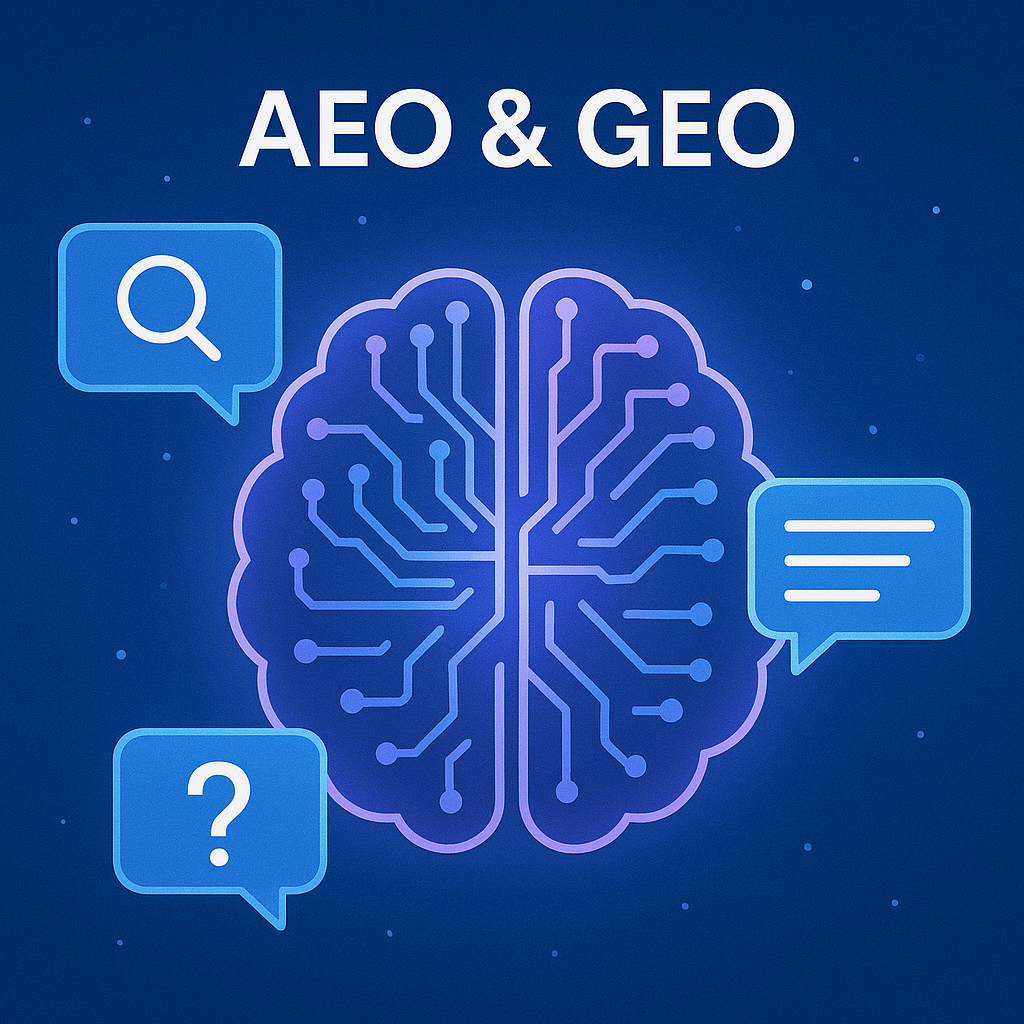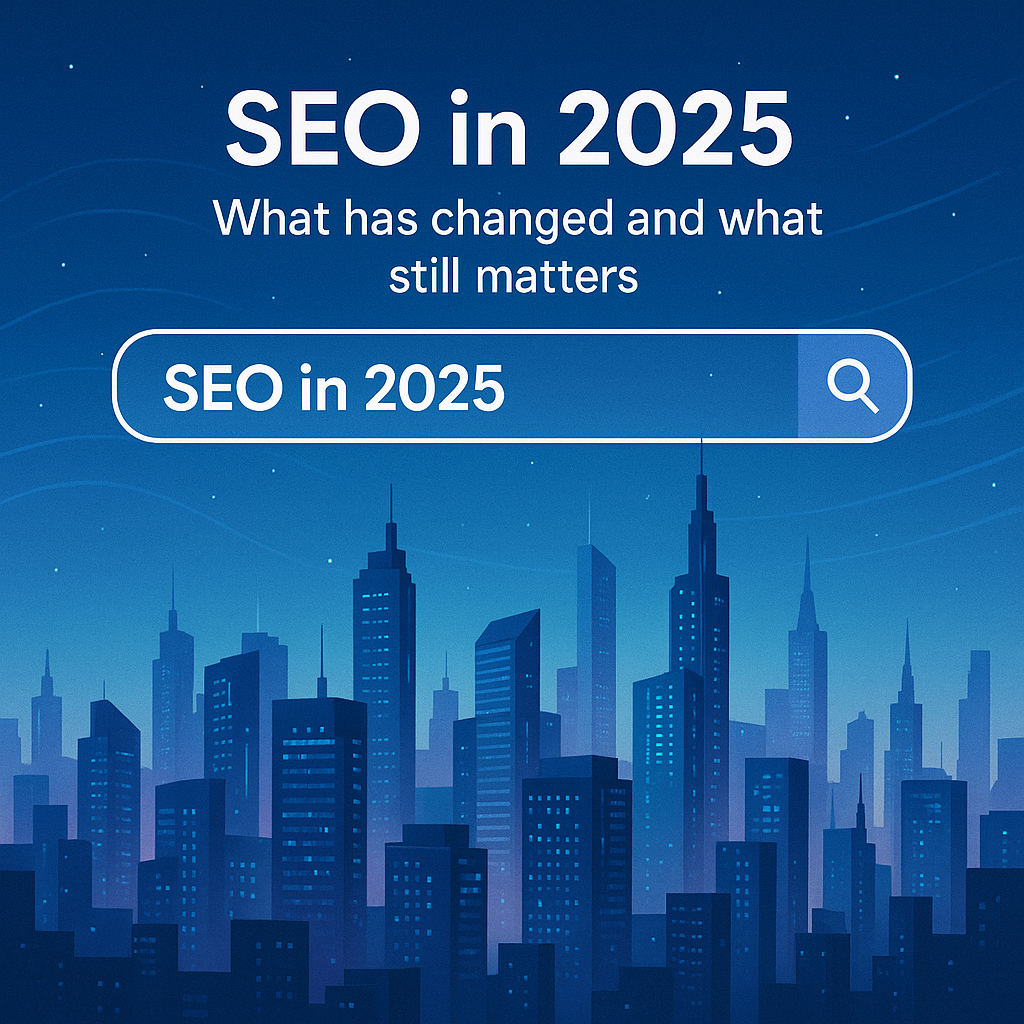Table of Contents
- Why AEO & GEO Matter Now
- Defining AEO, GEO & How They Relate to SEO
- AEO vs SEO vs GEO: What’s the Difference?
- Core Strategies for AEO & GEO Marketing
- How to Measure Success in AEO/GEO
- How JSH Can Help You Ride This New Wave
Why AEO & GEO Matter Now
The search landscape is evolving fast. AI-powered answer engines and generative systems are increasingly how users get their information—often without clicking through to a website. What used to be a “SERP click” is now an AI response with a citation. This shift means that simply chasing organic rankings is no longer enough.
Generative Engine Optimization (GEO) is now a distinct discipline focused on making content visible in AI-generated summaries. Wikipedia defines GEO as “the practice of adapting digital content … to improve visibility in results produced by AI-driven systems”. Meanwhile, Answer Engine Optimization (AEO) zeroes in on getting your content selected for direct answer formats like featured snippets, voice responses, and knowledge panels.
Research suggests GEO is not just hype. In the paper *Generative Engine Optimization: How to Dominate AI Search*, authors demonstrate that GEO techniques can increase the likelihood a source is cited in generative answers by a measurable margin.
Defining AEO, GEO & How They Relate to SEO
What is AEO?
AEO (Answer Engine Optimization) is about structuring your content so AI systems and search interfaces can pull direct answers from you. Think short, precise answers to questions, optimized with schema, strong headings, and conversational phrasing. In effect, AEO competes for “position zero” or the immediate answer space in search.
What is GEO?
GEO (Generative Engine Optimization) focuses on ensuring your content is included, cited, or surfaced in the outputs of generative AI systems—ChatGPT, Perplexity, Google AI Overviews, Gemini, etc. Unlike SEO which optimizes for rankings on SERPs, GEO optimizes for being part of the synthesized answer itself.
How they relate to SEO
SEO, AEO, and GEO overlap. Traditional SEO (keyword targeting, backlinks, technical performance) is still foundational. But AEO and GEO layer on top, extending visibility beyond clicks and links. As one commentator puts it: “The core principles of SEO largely apply to AEO”—but the execution and success metrics differ.
AEO vs SEO vs GEO: What’s the Difference?
Here’s a comparative snapshot:
| Dimension | SEO (Traditional) | AEO (Answer Engine) | GEO (Generative Engine) |
|---|---|---|---|
| Goal | Rank on SERP pages | Provide direct answers / featured snippets | Be cited or surfaced in AI-generated responses |
| Content Style | Keyword-rich, long-form, topic depth | Conversational Q&A, concise, FAQ style | Context-rich, entity-based, citation ready |
| Technical Signals | Backlinks, site speed, mobile, schema | FAQ/schema, structured data, natural language headings | Metadata, semantics, freshness, authoritative sources |
| Metrics | Organic traffic, rank, CTR | Featured snippet share, voice search appearance | AI citations, share in AI answers, generative appearance score |
It’s not SEO vs AEO vs GEO—it’s SEO + AEO + GEO working together for layered visibility.
Core Strategies for AEO & GEO Marketing
Use FAQ / Q&A formats
Embed clear question/answer sections in your pages. Use schema markup (FAQPage, QAPage) to help AI accurately parse your content for direct answers.
Optimize for machine scannability
Use headings (H2, H3), short paragraphs, bullet lists, tables, definitions, and structured data so generative systems can extract your content easily. In citation studies, structure and semantic HTML were among the strongest predictors of being cited.
Leverage entity & context signals
GEO favors pages that present clear entities (people, places, brands) and semantically rich information. Align your content to topical clusters, reference authoritative sources, and embed context around your subject.
Strengthen earned media & third-party signals
Generative engines tend to prefer authoritative, third-party sources over brand-owned pages. The empirical research in GEO (Aggarwal et al.) shows that GEO optimization can increase chance of citation by up to 40 %.
Maintain freshness & monitor trends
Keep content current. Many AI systems prefer recent data. Use updates, new stats, and current references. GEO frameworks also suggest real-time data integration (via RAG, retrieval-augmented generation) is a rising trend.
Blend SEO, AEO, and GEO content paths
Build a content architecture that serves all audiences: in-depth pillars (SEO), answer sections (AEO), and AI-citeable context (GEO). Use internal linking between these content paths to strengthen coherence.
How to Measure Success in AEO/GEO
As the landscape shifts, so must your KPIs.
- Featured snippet / answer inclusion percentage — how often your pages appear in snippet or answer positions
- AI citation rate — the rate at which your content is cited in generative AI responses
- Generative appearance score / share in AI answers — new metrics being developed in GEO benchmarking frameworks
- Voice / conversational query traffic — monitor traffic from voice or question-based queries
- Conversion and engagement from AI-driven referrals — not all AI output leads to clicks — but when it does, measure quality
How JSH Can Help You Ride This New Wave
At JSH Web Designs (aka JSH), we see AEO and GEO not as fads, but as foundational to future search visibility. We can help you:
- Audit your content for AEO/GEO readiness (schema, structure, context)
- Restructure existing pages to include conversational Q&A sections
- Develop new content clusters optimized for AI citation and entity strength
- Implement structured data, semantic HTML, and metadata enhancements
- Track AI-based KPIs and refine strategies based on evolving trends
The new frontier of search is here. Don’t wait until clicks start to drop. Let’s position you not just for rankings, but for answers, citations, and AI visibility. Contact JSH and let’s chart your path forward.
Author
-

Founder of JSH Web Designs, a website design firm and digital marketing agency in Knoxville. Overseeing day-to-day operations with a focus on website development and marketing to ensure our clients have the tools necessary to succeed in their vertical with data/result-driven strategies and technologies.



